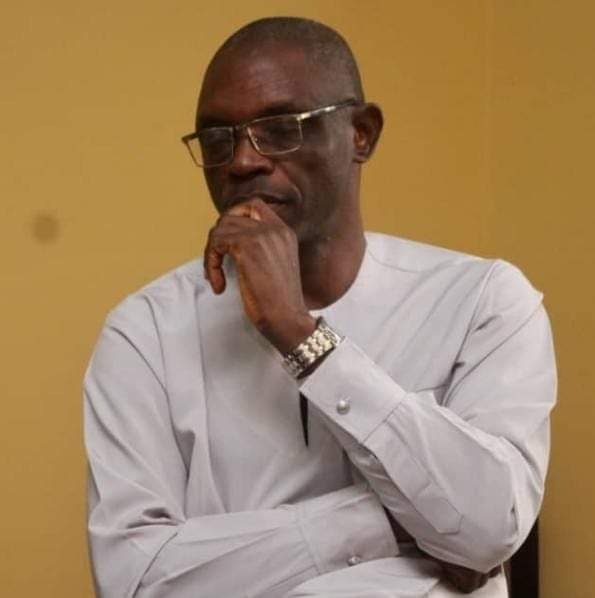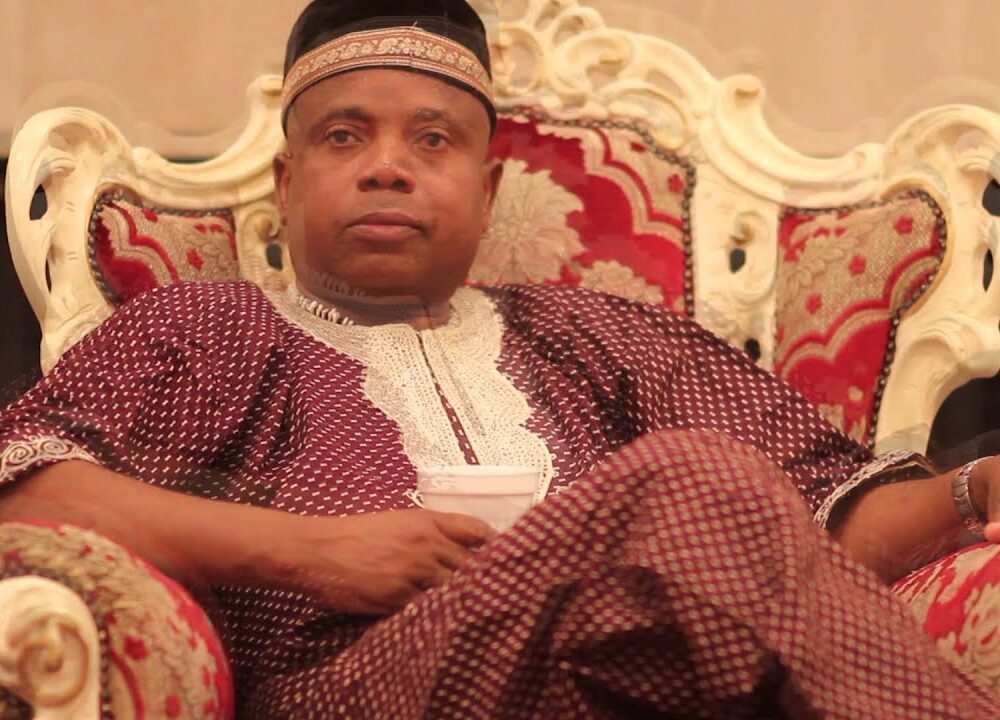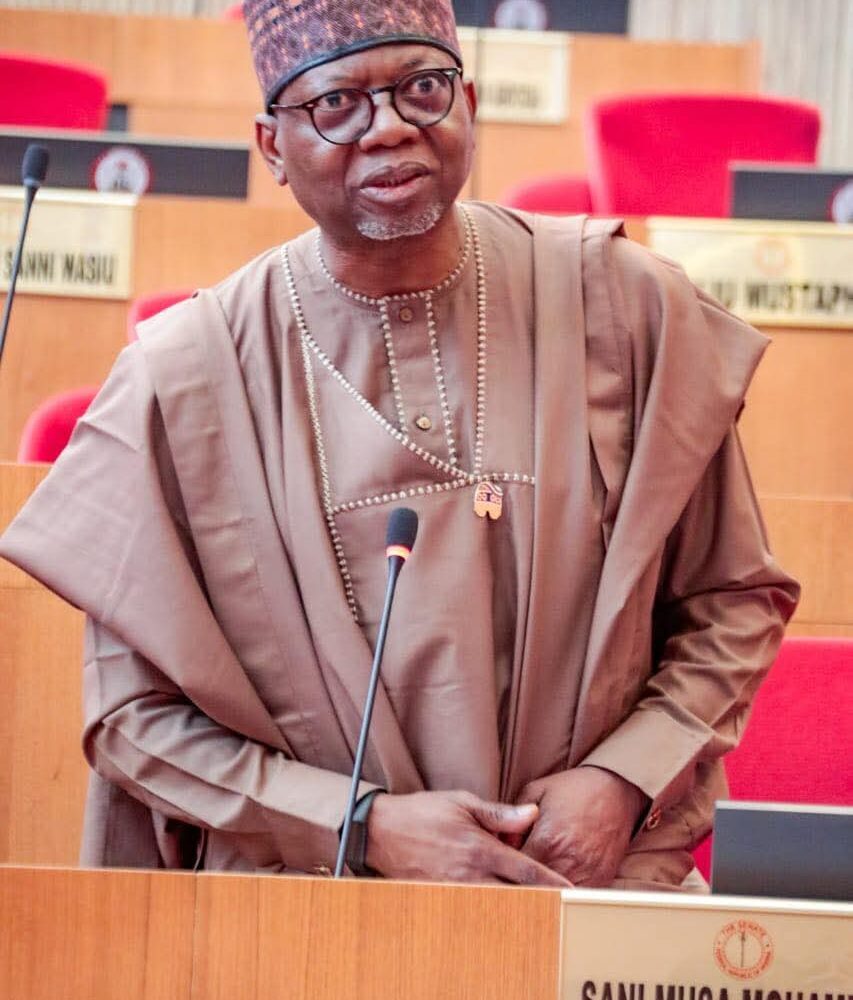If I were a politician, my devotion hours would be to the courts instead of pouring oil on INEC and voters, deities of limited powers. If the gods complain, I would ask them where they were when ugly death was killing sinners and saints. The buck – our electoral buck – stops at the courts. That is our reality.
A list of candidates for elevation to the Supreme Court was released last week by the Federal Judicial Service Commission. Every Nigerian should be interested in every name on that list; they are the electors of our future presidents and governors and lawmakers. They will decide the price of rice and beans tomorrow. Whether salaries and pensions will be paid and drugs will be affordable for the sick are attached to tomorrow’s decisions of the Supreme Court. It is our electoral college. We should ask questions on its proposed justices. How did the nominated get on the list? What qualified them to be there? What disqualified others who are not there? Why is Lagos on the list when it has already filled its quota?
History is replete with cases of people who went to bed free, slept too much and woke up a conquered people. Conquest used to be by the force of arms; now it is mostly through the courts. In Nigeria, the courts are the new military; they take and distribute power to politicians. To live well, escape poverty and captivity, we should take interest in our law courts and in those who sit in judgement there. How are the courts, particularly the Supreme Court, constituted? Ask questions; insist on answers.
The courts are under threats of abduction, immediate past president of the Nigerian Bar Association, Olumide Akpata, warned at the International Bar Association (IBA) conference in France last week. He described the selection process of Nigerian judges as “bizarre”. He said there was “a deliberate attempt” by the Nigerian political class “to capture the judiciary.” He added that they are “achieving results.” He painted the picture of a helpless nation. I agree with him.
There are 22 jurists on the nomination list released last week, but like in Animal Farm, the chosen are not equally favoured. The big men of power who drew the list put ‘priority’ in front of some; they stamped ‘reserve’ in front of others. What was the criterion (or were the criteria) for giving some priority over the others? Seniority? The seniority list in the Court of Appeal is publicly available on the court’s website; the nominations mock it, particularly for the South-West. Check the nomination list. Crosscheck it with the seniority list of justices of the Court of Appeal. In all the other five zones, seniority appears to have counted in arriving at the recommendations. But, in the South-West, it is a no. So, what was the goal of the appointers? And this is where I am going. I plead that you follow me.
I am from Osun State and I am interested in how it is affected by that list. There are two nominees from the South-West; one was chosen from Lagos and one from Osun State. The one from Lagos has a crown of ‘priority’ placed on it; the gentleman from Osun State is put on the reserve bench. The truth is: Lagos has no slot to fill; it already has Justice Kudirat Kekere Ekun as the number two of the Supreme Court. The slot is ordinarily for Osun State to fill and there is a history to that claim. Justice Emmanuel Ayoola, JSC, was the last candidate from Osun State on the Supreme Court bench. Ayoola retired at age 70 in October 2003. He was 90 last month. In simple arithmetic, for the past 20 years, Osun State has not been represented in the apex court – the result of a deliberate act of misallocation. And I will explain.
Listen. How many justices are supposed to be on the Supreme Court? The court itself answers that question on its website: “The Supreme Court of Nigeria consists of the Chief Justice of Nigeria and such number of Justices of the Supreme Court, not exceeding twenty-one, as may be prescribed by an Act of the National Assembly. Presently, the Supreme Court is made up of the Chief Justice and nine (9) other Justices.” A CJN plus 21 justices cannot go round all the 37 states of Nigeria at the same time. When eight masquerades are on the line and there are six bean cakes, the system has a way to get every ancestral costume round the basket of cakes. There is always a way. For the Supreme Court slots to go round, the states are paired or combined in twos and threes and allotted slots which rotate between or among them. Ekiti and Osun states are a pair here.
Justice Olufunlola Oyelola Adekeye got on the Supreme Court bench representing Ekiti State in March 2009. She retired from the Supreme Court in November 2012. Her exit created a vacancy that should, by right, be filled by Osun State. But smart Lagos, which already had Bode Rhodes Vivour occupying its own slot, got up in July 2013, did a fast one and took what should go to Osun State. It happened and there was no protest from Osun State. You wonder why? It was because Osun State of that era was a colony of Lagos. What happened was a case of olówó gbà’yàwó òle (the rich snatched the fool’s wife). They do that very often. Instead of Osun State’s Justice Jimi Bada of the Court of Appeal moving up to his rightful place at the top, Lagos snatched the slot for its Kudirat Motomori Olatokunbo Kekere-Ekun. The Centre of Excellence then had two slots while Osun State had zero. It is because of ‘Gbajue’ steps like this that the hinterland people like me (àwa ará òkè) always salute Lagos as Eko Ile Ogbon (Eko, home of wisdom).
The wisdom of Lagos here means craftiness and determination. It gets anything it wants because it is Lagos. If you don’t have money, everything you have amounts to nothing – including your wisdom. Lagos is rich both in means and guile – and that combination is lethal. Osun’s strength is more in needless crises and in acquiescence to rape of all kinds.
The retirement of Justice Bode Rhodes Vivour in 2021 should ordinarily reset justice for Osun State at the Supreme Court. But no; it does not appear this will happen. Instead of returning the snatched slot to Osun State after Rhodes-Vivour, Lagos is now positioned to grab it as an addition to Kekere-Ekun. The Federal Judicial Service Commission headed by the Chief Justice of Nigeria last week nominated Hon. Justice Adewale Abiru from Lagos State as South-West’s ‘priority’ nominee to join Kekere-Ekun who is already representing Lagos. Check the seniority list of the Court of Appeal where all the candidates were drawn from, Abiru has seniors in the South-West; two of them from Osun State. One of the two from Osun is, in fact, the number two in that court -Justice Jimi Olukayode Bada; another is number 15, Justice Tunde Awotoye. The favoured Lagos man, Abiru, is number 22 – far behind those two. They ignored numbers 2 and 15 and went for number 22 – because he is from Lagos. Even if, for whatever reasons, those two seniors refuse to move up and the choice of the commission is Osun State’s Justice Olubunmi Oyewole (number 32), should he be made to be a ‘reserve’ candidate as the commission has done given the fact that the slot is for Osun State to fill?
In all these, we’ve seen how untrue our laws are that Nigerian states are equal. There is no equality of states in Nigeria; there are 22 Supreme Court seats for 37 states, Lagos alone takes two. Why is Lagos investing its men in the courts, particularly the Supreme Court? Lagos may be plain-speaking but it is never plain-dealing; it cheats, and it does it without consequences. I call Lagos the Napoleon of the West; it fights for other Pigs by cheating them. When an elder plays a game of ayò with a younger person, he must win, whatever it takes. Kí ni wón nfi àgbà se? What is the usefulness of age if you cannot deploy it to cheat children? That is the political and moral compass of the political entity called Lagos. If you like, disagree with this and flaunt Osun as the elder because it is the ‘cradle’, the ‘beginning’. But, know this: in Yorubaland, the rich is the elder – Olówó l’àgbà. Anyone with loads of years without money exists to be ignored, cheated and exploited.
I suspect the courts are being eyed by interests because with their gavel, judges confer privileges, advantages and freedoms. They also oppress and subjugate. Check how the original owners of lands in the United States lost their rights over their lands and were converted into tenants. Read Lindsay Robertson’s ‘Conquest by Law’ (2005), how the American Supreme Court awarded “all discovered lands” to European “sovereigns” and gave “occupancy rights” to the original owners. How did it happen? Would it have happened if the judges were not of European origin? The Nigerian people have their feet firmly on that route. Their own conquest by law will be complete and completed soon unless they cap their sleeping hours.
A whole country can be helpless. Nigeria is. My dictionary says ‘helplessness’ means “weak or dependent: a helpless invalid deprived of strength or power; powerless; incapacitated.” A whole people can be helpless, especially if they choose to. The 1823 American case referenced above, Johnson v M’Intosh, gave birth to the Discovery Doctrine which, if applied here, would bequeath River Niger and all its lands to Mungo Park and his descendants. Fortunately, our politicians and the judges have not thought of importing it into our laws complete with affidavits averring that they are heirs to Mungo Park’s estate. They may still do it, once they are through with the construction of the courts in the image of their desires.
The Supreme Court should be the afflicted’s locus amoenus, a pleasant place of refuge, safety and comfort. But how do we tell the story of a court built of blocks of injustice? That is what I see in those who have enough taking from those who have none right inside the temples of justice. Our ancestors had neither good names nor prayers for warlords who pull straws from their neighbours’ roof so that theirs would stop leaking. The current flood from the rains will wash away the house of justice if the owners look on. It is almost a week since that Supreme Court list was out, I have not heard a whimper of protest from those holding the short end of the stick. Osun’s forbearance is legendary. But is it not stupidity to stay in queue when the other party wants everything? Lagos that has Surulere (patience is profitable) has never believed in waiting for its turn.
“He that oppresseth the poor to increase his riches, and he that giveth to the rich, shall surely come to want” (Proverbs 22:16). Enablers of iniquity have not read that verse in their Bible. They have also not read Romans 12:19. – “Let love be without hypocrisy. Abhor what is evil. Cling to what is good.” To those who are Muslims and who excuse evil for reasons of class, creed and ethnicity; to them that teach or plead or enforce acquiescence as evil multiplies itself, I commend the words of the Prophet as reported by Abu Sa’id al-Khudri: The Messenger of Allah (peace and blessings be upon him) said, “Whoever among you sees evil, let him change it with his hand. If he cannot do so, then with his tongue. If he cannot do so, then with his heart, which is the weakest level of faith” (See Sahih Muslim, 49).
Evil will grow and flourish if it is manured with helpless acceptance. And that will be the death of Nigeria, its democracy and our freedoms. Khalil Gibran (1883-1931) was a Lebanese-American writer, poet and visual artist. He warned us never to refuse anything by accepting it; he said we should never nurse half hopes and fight half battles. He wrote many powerful lines, the most engaging are in his book, ‘The Prophet’ with the avant-garde poem ‘Do Not Love Half Lovers’. I reproduce it here: “Do not live half a life/and do not die a half death/ If you choose silence, then be silent/When you speak, do so until you are finished/If you accept, then express it bluntly/Do not mask it./If you refuse, then be clear about it/for an ambiguous refusal is but a weak acceptance./Do not accept half a solution/Do not believe half-truths/Do not dream half a dream/Do not fantasize about half hopes/ Half the way will get you nowhere/You are a whole that exists to live a life/not half a life.”
I pray we listen – and loudly refuse to choose silence.





